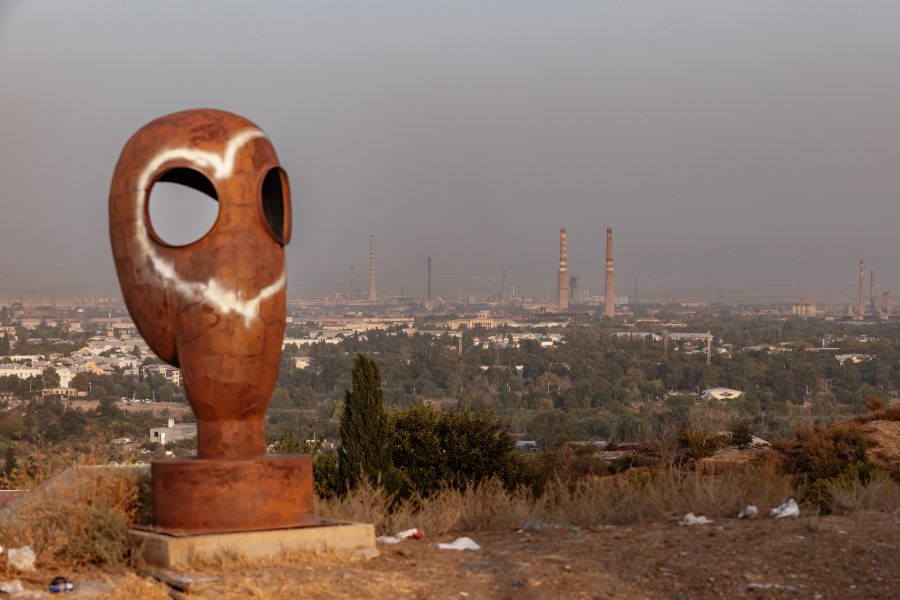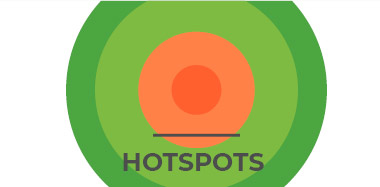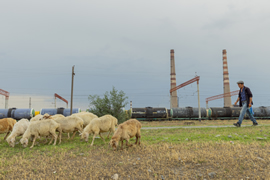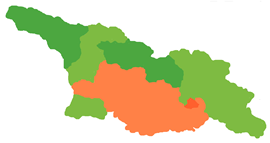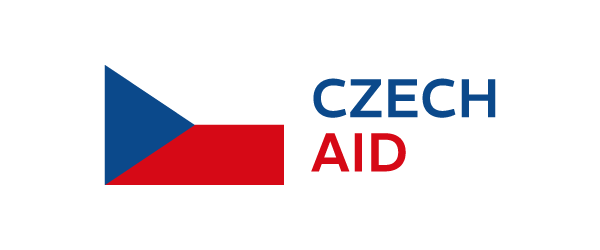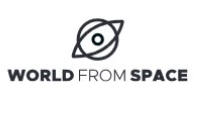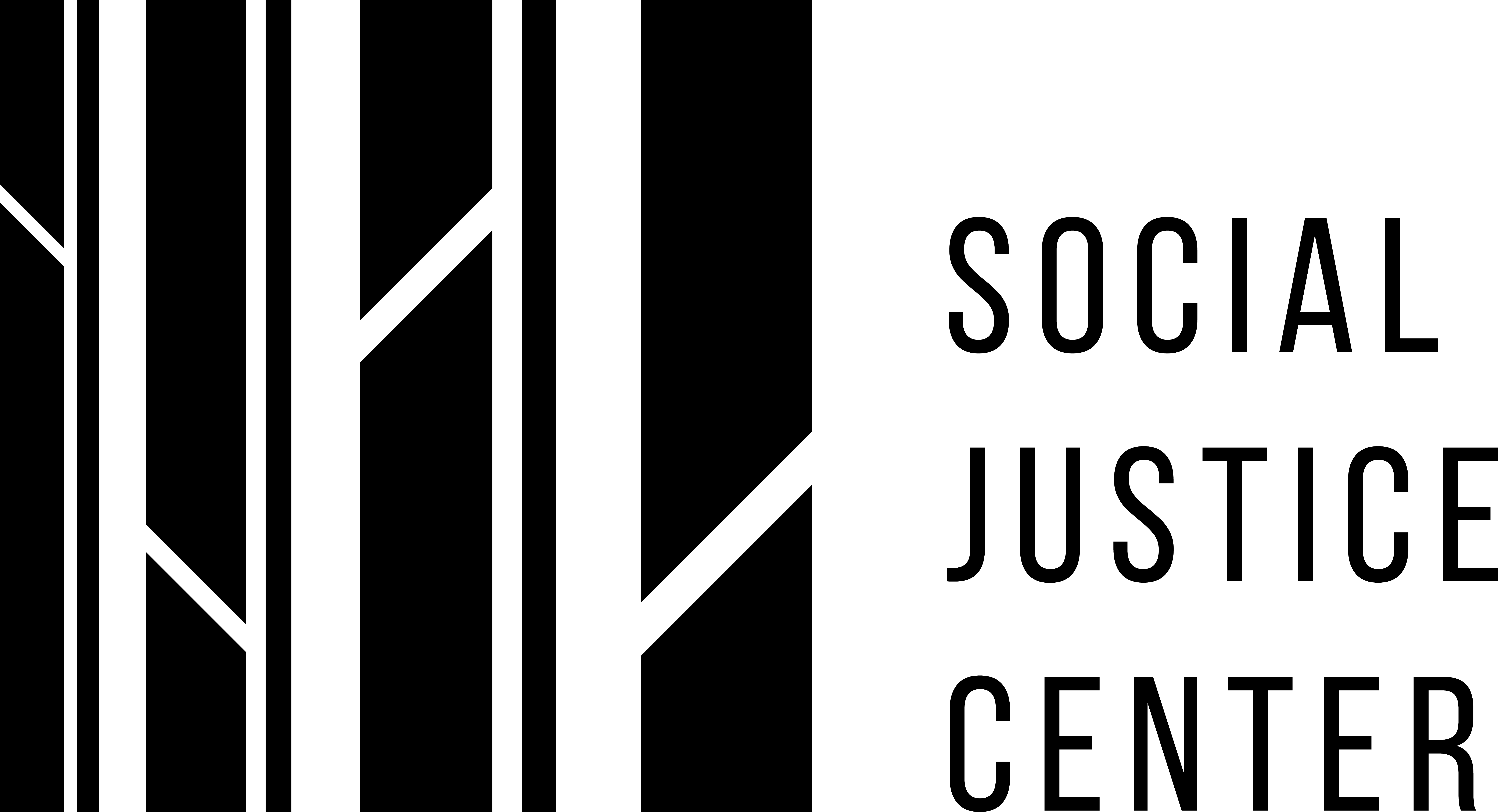“Eating just one local egg exposes people in Rustavi to dioxin levels several times higher than what the European Food Safety Authority considers safe for daily consumption,” said Jindřich Petrlík, lead author from Arnika. “The data indicate toxic industrial legacy and ongoing contamination. Residents pay the price for insufficient pollution monitoring, and weak state control of businesses operating outdated technologies, as well as ongoing illegal use of banned pesticide DDT,” he adds.
“Our research proves that Rustavi’s residents face a cumulative chemical burden from various sources such as industrial emissions, contaminated soils, and unsafe local food, exposing them to serious health risks. This calls for urgent comprehensive action – from immediate contaminated playground soil replacement to long-term pollution monitoring and state enforcement of investments in cleaner technologies,” Nikola Jelínek from Arnika comments.
Toxic chemicals in soil, food, and rivers
The study detected persistent organic pollutants (POPs), pesticides, and heavy metals in the soils of children's playgrounds, urban dust, river sediments, free-range chicken eggs, and fish from the Mtkvari River. Playground soils contained DDT residues up to 3,500 times higher than rural background levels and elevated levels of polychlorinated biphenyls (PCBs). DDT and PCBs can disrupt nervous and hormonal systems, damage the liver and reproductive health, and increase cancer risk. Heavy metals cadmium and zinc exceeded Czech hygienic standards, with cadmium posing risks to fetal development, and excessive zinc potentially causing digestive problems and anaemia.
Free-range eggs exceeded EU limits for dioxin-like PCBs by up to sevenfold, with some samples containing some of the highest-ever recorded levels of chemicals used as flame retardants. Fish from the Mtkvari River showed high concentrations of PCBs and DDT, in some cases surpassing international food safety limits.
Government Must Act Now
The study recommends stopping the use of illegal pesticides and cleaning up contaminated playgrounds by replacing the contaminated soil. The authorities should enforce environmental and food safety laws and provide the citizens with advisories on the consumption of local eggs and fish. They shall also secure long-term monitoring of industrial emissions and legacy waste sites, strengthen controls, and enforce investments in technologies to protect the environment. Researchers emphasize that solving this crisis requires cooperation with civil society and independent experts, transparent data sharing, and involving local communities in decision-making. Without government action, the contamination will persist for decades.
Annexes:
1/ Toxic Hotspots in Rustavi, Georgia (the study in English)
2/ Toxic Legacy in Rustavi: A Hidden Health Crisis (a one-pager in English)
3/ Key findings of the Rustavi pollution research
Dangerous chemicals found in food:
Free-range chicken eggs from the Rustavi area contain levels of dioxins, both dioxin and non-dioxin-like PCBs exceeding EU food limits by several times. Just one local egg can expose a person to 3–4× more dioxins than the safe tolerable daily intake established by the European Food Safety Authority.
Children’s playgrounds polluted:
Soils from Rustavi playgrounds show extremely high levels of banned pesticides (DDT) and industrial chemicals (PCBs), with some values exceeding background levels by up to 3,500 times and 180 times, respectively. Zinc and cadmium also exceeded Czech hygienic standards for children's sandboxes.
Toxic dust and soil in residential areas:
Street dust near industrial zone contains heavy metals like lead and cadmium at concentrations 20–25× higher than in clean areas. Chromium and zinc levels ranked among the highest reported in comparable international studies.
Contaminated river and fish:
Fish from the Mtkvari River carry worrying levels of legacy POPs and heavy metals. Although not everyone eats local fish, families who do may face increased health risks from long-term exposure. Levels of DDT and PCBs in sediments were several times higher than measured at riverine locations.
Signs of ongoing illegal pesticide use:
The chemical profile of DDT in soil and eggs suggests it is still being used or released today— despite its international ban by the Stockholm Convention in 2004, with Georgia joining in 2006.


